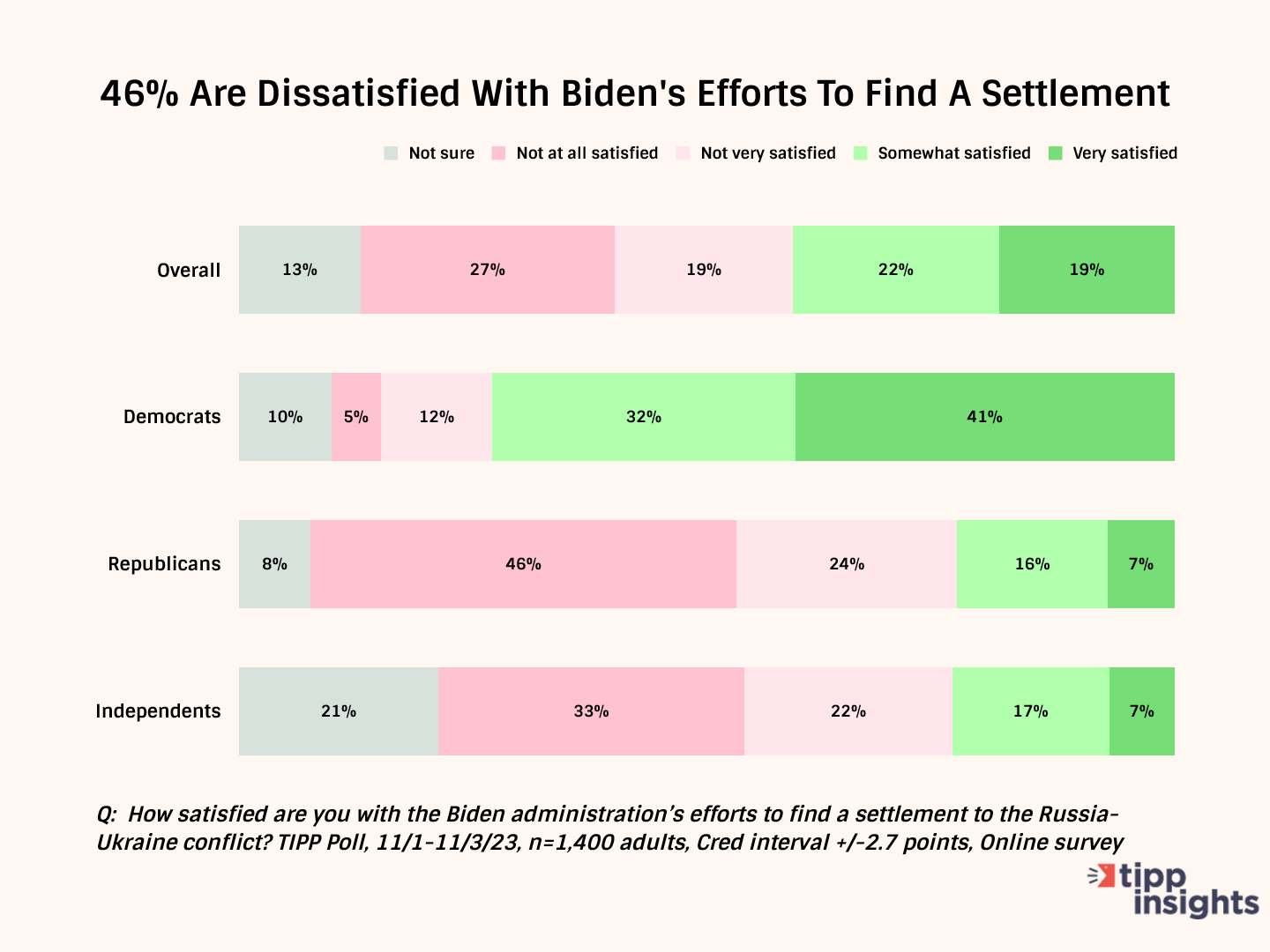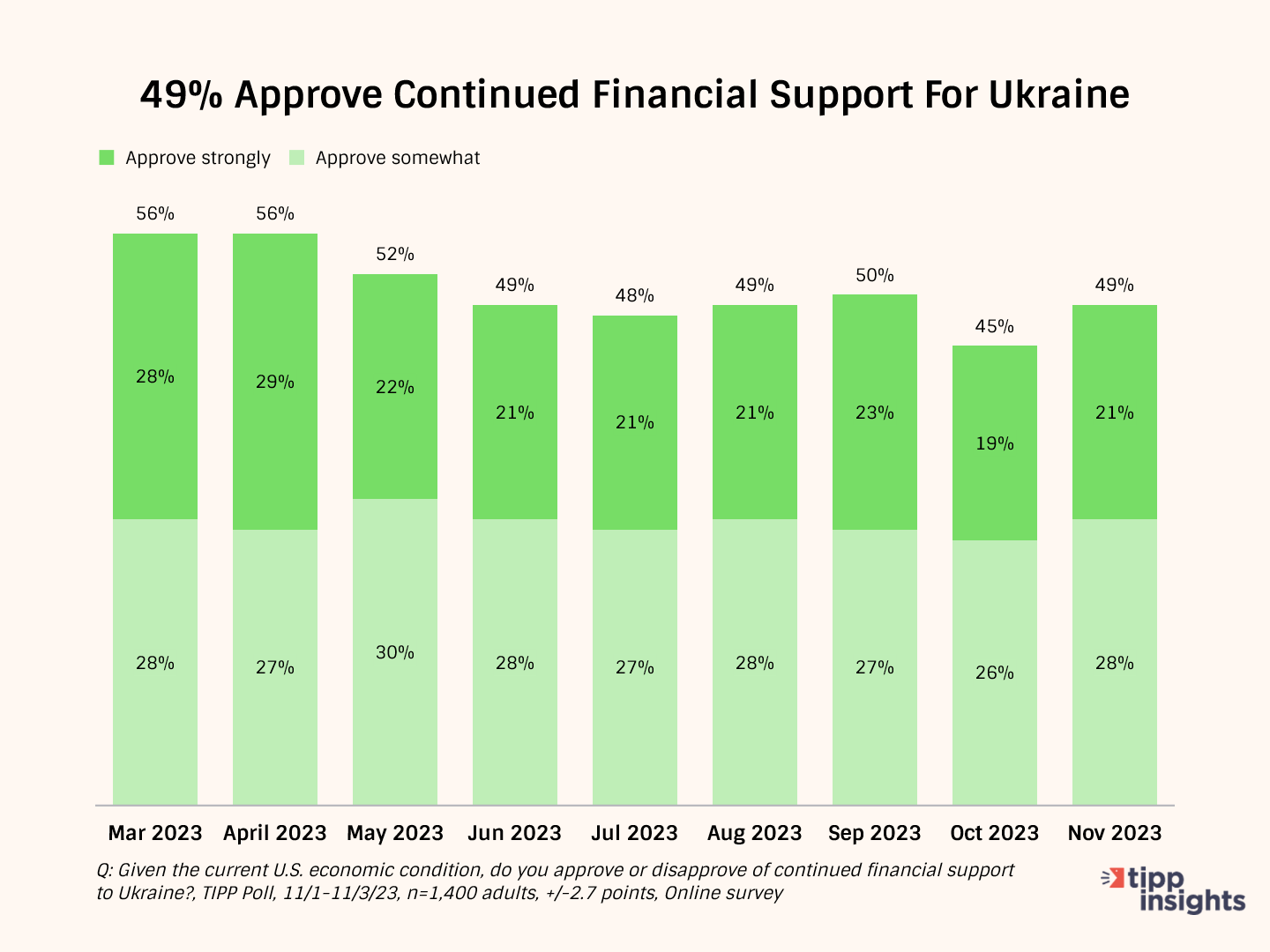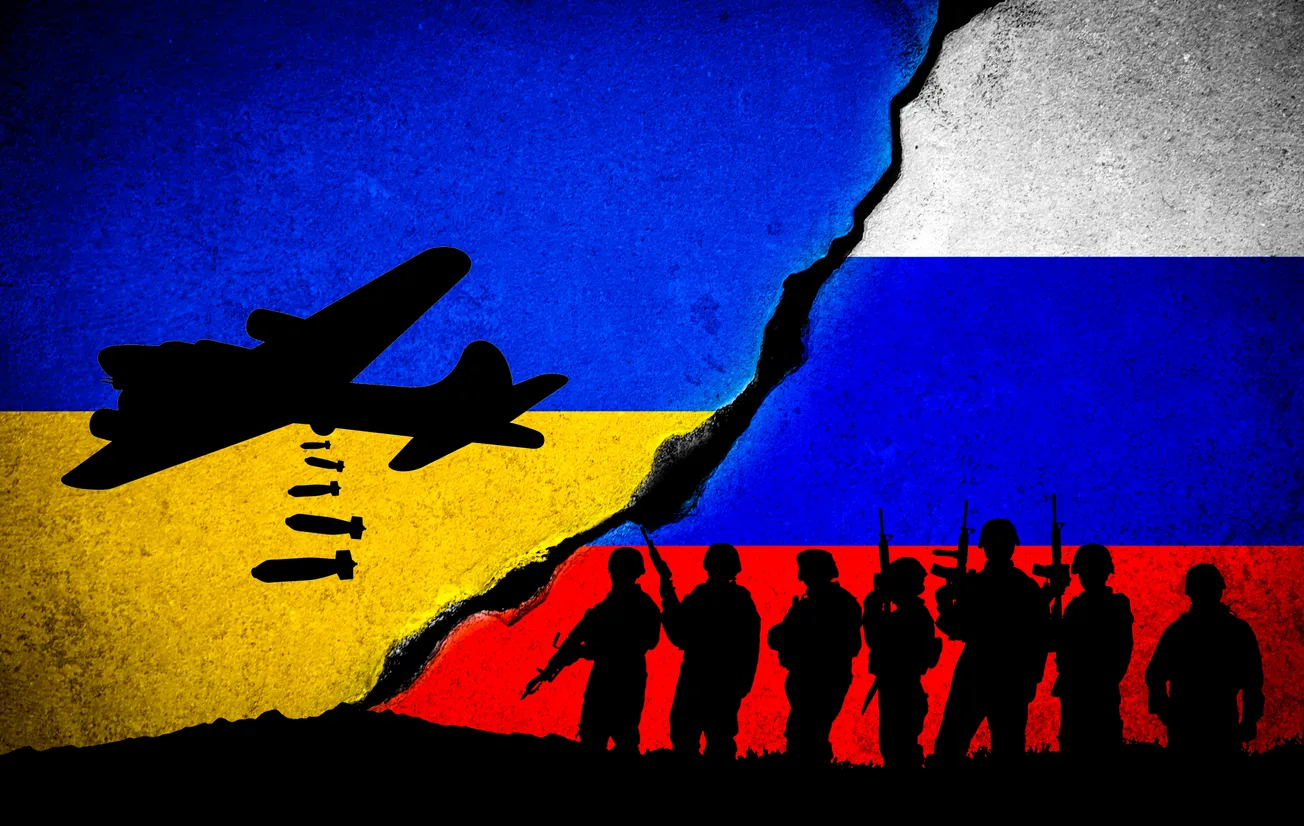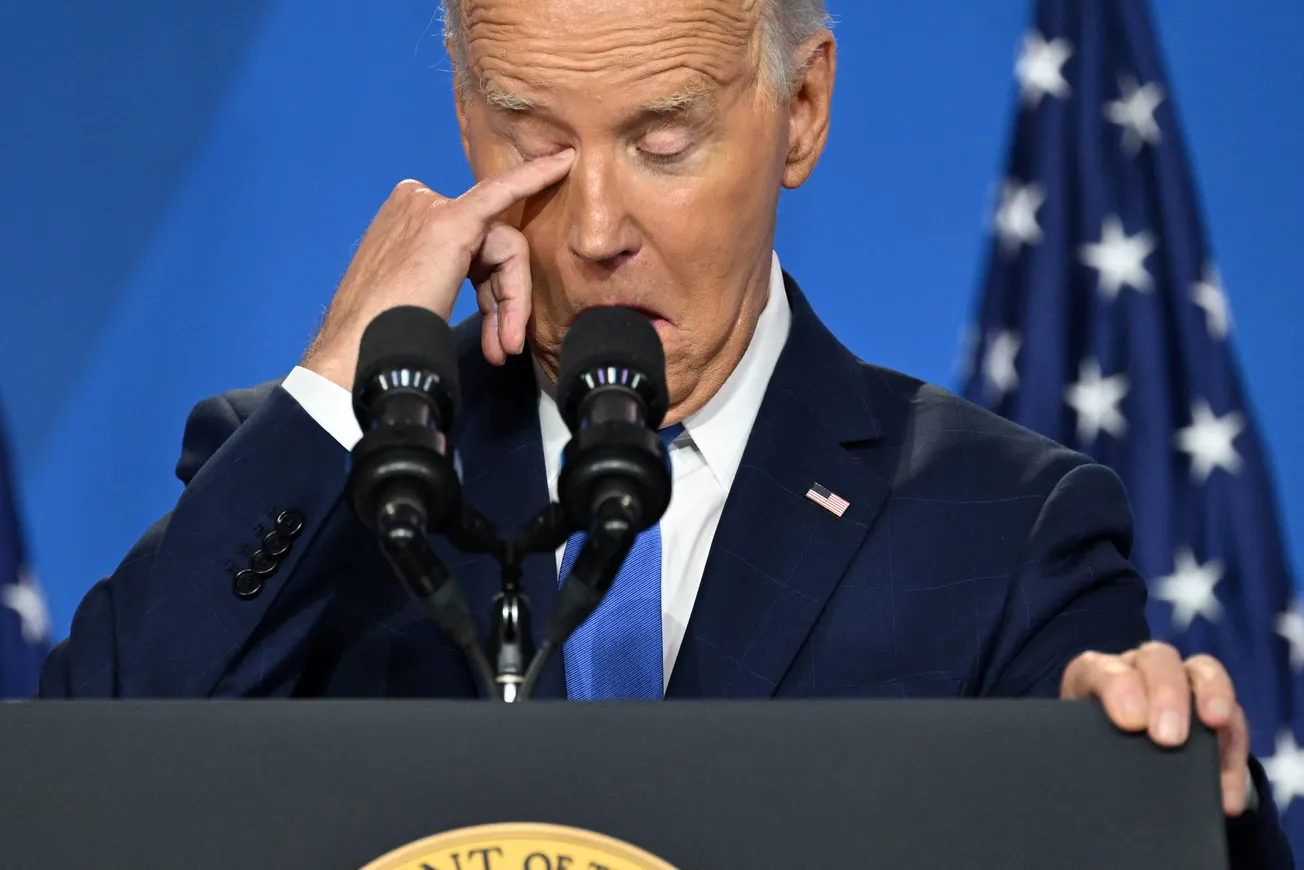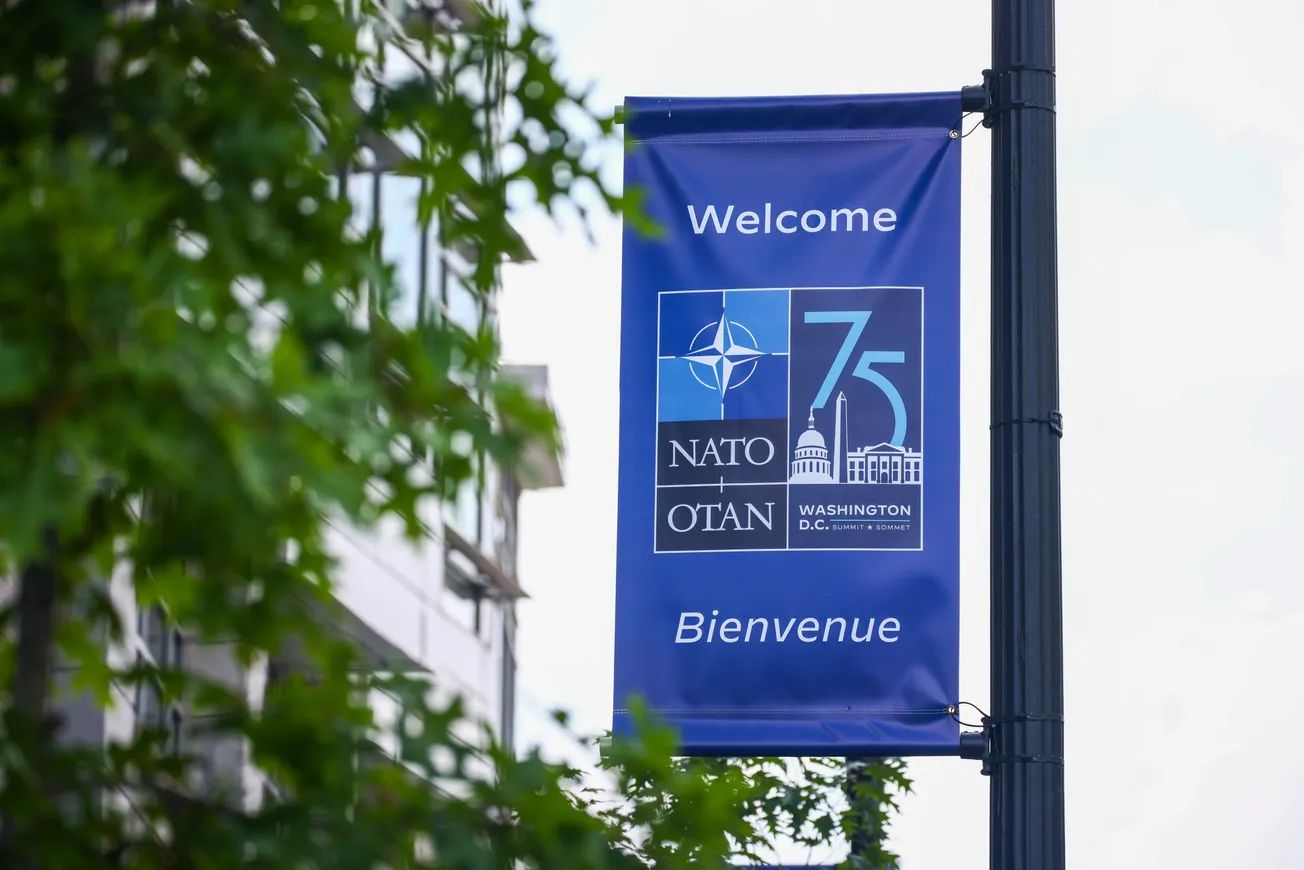- NBC News reported on peace negotiations between U.S., European officials, and Ukraine
- The tone of the recent reports differs from the previous one-sided media coverage of the war
- Ukraine's top general believed the war was a stalemate
- The changing media narrative suggests the war in Ukraine may be coming to an end
NBC News quietly released the most explosive anti-Ukraine story on Friday. Quoting sources, the article said that U.S. and European officials have broached the uncomfortable topic of peace negotiations with Ukraine, including "very broad outlines of what Ukraine might need to give up to reach a deal with Russia."
It was an astonishing piece of war reporting.
Media coverage during the over 20-month war between Russia and Ukraine has primarily been one way: Ukraine was making significant gains with Western help, and Russia was losing miserably. The total victory of evicting Russians from every square inch of Ukraine was challenging but not improbable, so it remained the goal. The West would, therefore, continue to supply weapons and aid for the "as long as it takes" conflict. And any talk about peace was premature and insulting to Kyiv - because only Ukraine should and could consider those factors.
The truth has been that such biased pro-Ukrainian coverage has insulted readers. Anyone following the war closely knew Kyiv depended entirely on Washington and the Western capitals, including for military and diplomatic strategies.
A few days before the NBC story, there was another by Simon Shuster of Time magazine, reporting from Kyiv. Shuster had been granted intimate and exclusive access to President Zelensky's top advisers as the reporter who had written the article on the Time Man of the Year 2022 Award, which Zelensky won. Shuster reported that by the admission of Zelensky's top advisers, the war is currently unwinnable for Ukraine. It was another sensational revelation.
The Time story coincided with two other pieces in the British press. The Economist reported that Ukraine's commander-in-chief, General Valery Zaluzhny, believed the war was a stalemate. Unlike in the United States, Ukraine's commander-in-chief is not its president but the highest-ranked officer in its armed forces. For someone in his position to reveal that Ukraine wasn't making progress in its counteroffensive - when Jake Sullivan, America's National Security Adviser, explicitly said in August that the conflict was not a stalemate - was extraordinary. The Economist went a step further, carrying a full companion essay by the General detailing the need for advanced weaponry. Why the secretive Ukrainians would publicly reveal their military readiness (or lack thereof) was a head-scratcher.
And on Saturday, the paper of record, the New York Times, carried a story where President Zelensky's office rebuked the General's assessment that the fighting was a stalemate, arguing, rather obviously, that such a declaration was helpful to the Russians. Under the hood, the piece brought to light, for the first time, divisions in the top leadership of the Ukraine command.
The crack in the loyalty became even more evident when Zelensky, the previous day, fired one of the General's deputies, the head of special operations forces. Neither the General nor the fired deputy knew the dismissal was imminent. In an interview with the Times, Solomiya Bobrovska, who serves on the Parliament’s defense and intelligence committee (and sits in the opposition), said: “The firing looks like political interference into the armed forces and its combat actions.”
What is also remarkable is how much those in the know have been wrong and have consistently misled us. On June 4, the day after the counteroffensive started, retired U.S. General David Petraeus was quoted by USA Today. "Many of the Russian soldiers have been in combat for a year or more continuously without being rotated out. They're not pulling their units off to reconstitute them after they take losses. They just push poorly trained and equipped individual replacements into them." Ukrainian forces have been training for many months. They are well-disciplined, adding they are "well-led, and they're well-equipped now, with Western tanks and infantry fighting vehicles." As recently as Aug 24, Petraeus was still optimistic. In a Washington Post op-ed, he said, "Ukraine’s counteroffensive might yet surprise critics."
Both did not age well.
Taken together, these four media stories, all in the space of a week, mark a pivotal moment in the media’s war coverage. To be sure, we noted in August that the media had begun to pivot on Ukraine, carrying more negative stories compared to the drumbeat propaganda before, but this week was remarkable in the transformation of the narrative. It points to an inconvenient truth for the Neocons fighting for more war funding: the war may be finally drawing to an end.
As we noted yesterday, the Democrats and some in the Senate GOP appear boxed in on the border and Ukraine funding. Their negotiating hand is now further weakened as they get pushed even more into the corner - unless, like in typical Beltway fashion, they will take the "we-know-more-than-you-do" route and shove war funding down the American taxpayer's throat. We hope that Speaker Johnson will not let them do that.
The U.S. is $34 trillion in debt. Many Americans desire fiscal austerity and are concerned about their government's unsustainable borrowing. According to a recent TIPP poll completed on Friday, only 49% of Americans approve of continued financial support to Ukraine, while 46% of respondents expressed dissatisfaction with President Biden's efforts to reach a settlement.
The week's developments will make millions of Americans and over 30% of Ukrainians happy as an end to the war seems to be in sight.
Related Data
